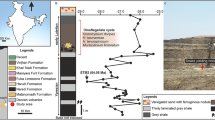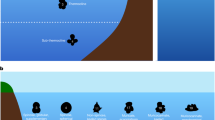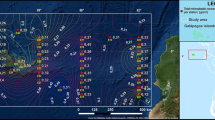Abstract
MYGALOMORPH spiders are notoriously absent from oceanic islands, owing to the fact that their young do not habitually distribute themselves by sailing in the air on gossamer. It is interesting, therefore, to record the occurrence in Samoa of Idioctis helva L. Koch, one of the Barychelidæ. This species was recorded previously only from Fiji, and the Samoan specimens differ only in minor details from the descriptions of the Fijian ones. Mygalomorph spiders of any kind are recorded in the south-west Pacific only from New Zealand, Fiji, New Caledonia and the groups to the north. All these islands are situated in the relatively shallower part of the ocean. Mygalomorphs have not previously been recorded on the truly oceanic islands to the east.
This is a preview of subscription content, access via your institution
Access options
Subscribe to this journal
Receive 51 print issues and online access
$199.00 per year
only $3.90 per issue
Buy this article
- Purchase on Springer Link
- Instant access to full article PDF
Prices may be subject to local taxes which are calculated during checkout
Similar content being viewed by others
Author information
Authors and Affiliations
Rights and permissions
About this article
Cite this article
MARPLES, B. Mygalomorph Spider in Samoa. Nature 168, 300–301 (1951). https://doi.org/10.1038/168300b0
Issue Date:
DOI: https://doi.org/10.1038/168300b0
Comments
By submitting a comment you agree to abide by our Terms and Community Guidelines. If you find something abusive or that does not comply with our terms or guidelines please flag it as inappropriate.



